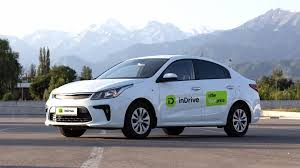Global ride-hailing company, inDrive, has introduced a new initiative in Abuja that reduces its commission to just 0.1% for drivers during peak hours. The move, announced by the company on Thursday, is aimed at helping drivers earn more money during periods of high demand, especially as Nigerians continue to grapple with increasing living costs.
Speaking on the development, inDrive’s Country Representative for Nigeria, Oladimeji Timothy, said the low commission initiative was designed to support drivers in a practical and impactful way, especially at times when they work the hardest. “This initiative is part of our commitment to put drivers first. With 0.1 percent commission during peak hours, drivers in Abuja can keep almost everything they earn, especially when demand is highest. It will put more money in their hands,” he said.
The new commission structure applies to weekday peak hours at 7:00 AM, 8:00 AM, 4:00 PM, and 5:00 PM, which are the typical rush hour periods in the city. On weekends, the low-commission window is extended to include additional evening slots, giving drivers more flexibility to maximise their income during busy times.
The company said the decision to drastically cut its commission during rush hour is part of a broader global strategy to prioritise fairness and driver empowerment. Unlike other ride-hailing platforms that take significant portions of drivers’ earnings, inDrive is known for its unique peer-to-peer pricing model. This model allows both drivers and passengers to negotiate and agree on fares directly, giving drivers more autonomy over their pricing and income.
“Drivers are at the heart of our business. We understand that rising costs have made it more difficult for them to sustain operations. By reducing our commission to almost zero during peak hours, we’re giving them a real opportunity to increase their earnings and support their families,” Oladimeji added.
inDrive’s approach stands out in the competitive ride-hailing market by offering one of the lowest commission rates globally. With the introduction of this initiative in Abuja, the company believes more drivers will be encouraged to work during peak hours, improving availability for passengers and creating a better overall experience for users of the platform.
Abuja, like many urban centres in Nigeria, faces heavy traffic during rush hours. Commuters often experience delays, and demand for ride-hailing services spikes as people rush to get to work or return home. The company hopes that by incentivising drivers with higher take-home earnings, more vehicles will be on the road during these critical periods, reducing wait times and improving service delivery.
The initiative is expected to strengthen inDrive’s market share in Abuja, where it competes with other major platforms like Bolt and Uber. However, by offering drivers greater income control, the company is positioning itself as a driver-friendly alternative. In a market where many drivers complain about high commissions and low net income, inDrive’s 0.1% offer could prove to be a game-changer.
The company also hinted that if the Abuja model proves successful, similar strategies could be rolled out in other Nigerian cities. “We are always looking for ways to empower drivers and make our platform more attractive. This is just the beginning,” Oladimeji said.
inDrive, originally founded in Russia, has rapidly expanded across various regions including Africa, Latin America, and Asia. It continues to gain popularity for its user-focused approach and flexible pricing system, which contrasts sharply with the fixed pricing models of many competitors.
As Nigeria’s economy continues to adjust to new realities such as fuel subsidy removal, currency devaluation, and high inflation, initiatives like inDrive’s commission slash are welcomed by many within the informal transport sector. Drivers in Abuja are now hoping that this model will help them cope better with rising operational costs while keeping their services affordable for passengers.
